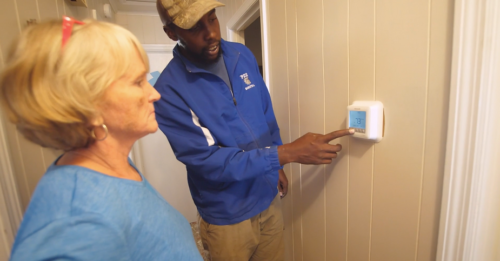Blog
Response to Duke Energy’s Proposed Combined Carbon Plan and Integrated Resources Plan (CPIRP)
Background on the Carbon Plan In 2021, leadership in the North Carolina General Assembly and the Governor reached a bipartisan agreement to establish the first carbon reduction mandates for a state in the Southeast. This agreement was enacted into law as House Bill 951: Energy Solutions for North Carolina (HB 951). It requires Duke Energy (Duke) to…
Read MoreClean Energy Contributes Billions to North Carolina’s Economy
Did you know that North Carolina experienced $1.2 billion in renewable energy investment in 2022, which is 41 times the $29.8 million of investment seen in 2007? Throughout the state, there is evidence of the clean energy transition everywhere you look. From the widespread growth of utility-scale solar, to the ongoing buildout of electric vehicle…
Read MoreNC Utilities Commission Approves Innovative, Inclusive Energy Efficiency Program
NCSEA celebrates the recent news that the N.C. Utilities Commission (NCUC) issued an order approving the statewide rollout of an innovative energy efficiency program that will help homes receive much-needed upgrades at low-to-no upfront costs and see monthly net savings on their utility bills. We commend the NCUC for its decision that we expect will…
Read MoreReflecting On Our Collective Achievements
After several months of planning, in July we announced that I was stepping down from the role of Executive Director here at the North Carolina Sustainable Energy Association (NCSEA). It has been an honor to work with the team at NCSEA, the board, and all of our members and partners over the last seven years,…
Read MoreHabitat for Humanity Stays in the Habit of Energy Efficiency
This blog was collaboratively authored by Sydney Fox and Jessica Reid. Habitat for Humanity is a nonprofit organization known for building and retrofitting homes for income-qualified families in need. With a primary focus on new affordable home construction and home preservation, the organization is committed to building a sustainable and equitable future for communities.…
Read MoreA Legacy Gift Leads to Solar at Asheville Buncombe Community Christian Ministry
Asheville Buncombe Community Christian Ministry (ABCCM) recently received a generous donation to pay for a solar installation at its Transformation Village for homeless women and children. The donation allows the ministry to save about $3,000 per month on its energy bills and put that money toward other initiatives to help people recover from homelessness. ABCCM…
Read MoreKey Legislation and Regulation Driving Clean Energy in North Carolina
North Carolina has been a national leader with continued room for growth in the clean energy transition as #4 in installed solar capacity and #2 in offshore wind net technical energy potential in the United States. Some policies have been key to the state’s progress in taking advantage of clean energy resources and the economic…
Read MoreMember Feature: Enel X Way Takes Charge of a Clean Transportation Future
This blog was coauthored by NCSEA and Enel X Way. Enel X Way is a subsidiary company of Fortune 200 renewable energy leader, the Enel Group, and is dedicated to electric mobility. Enel X Way, an NCSEA member, operates in 16 countries and manages over 500,000 public and private charging ports worldwide. Learn how they are transforming…
Read MoreUnlocking the Potential of Solar Leasing in North Carolina
North Carolina’s transition to a fully decarbonized electricity sector can be greatly accelerated through the untapped potential of a more inclusive and accessible financial model: solar leasing. Solar leasing offers a great way to expand access to photovoltaic (PV) systems by avoiding significant upfront costs, credit challenges/hurdles, and large capital investments made by homeowners.…
Read MoreSqueaky Clean Energy Podcast Episode 92: North Carolina Ratepayers Could Save How Much??
Ever since the failed $8.5 billion VC Sumner nuclear plant project in South Carolina, the region has been exploring ways to better protect ratepayers from utility overreach and unchecked spending. As a result, SC passed a bill to study the benefits of market reform for the state. A study conducted by Brattle Group found that…
Read More


